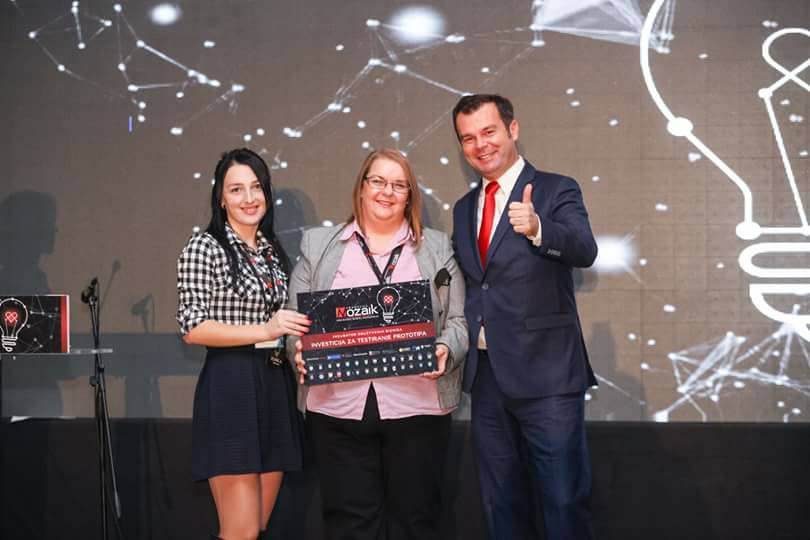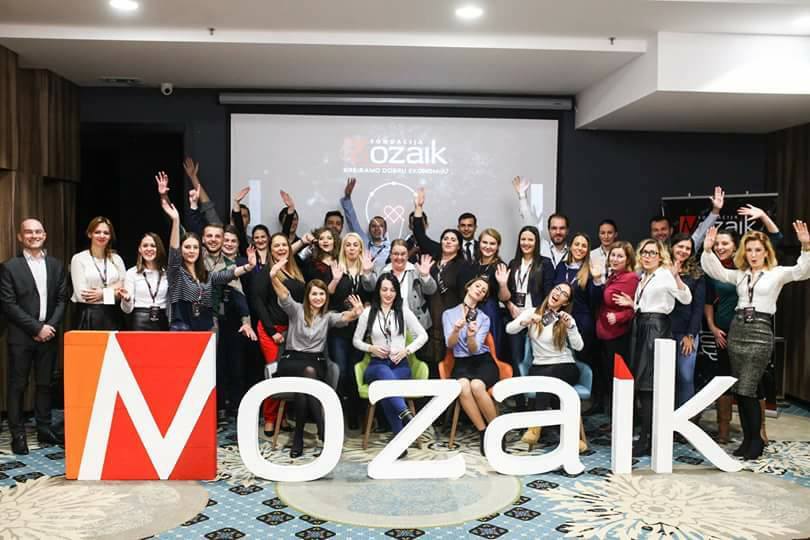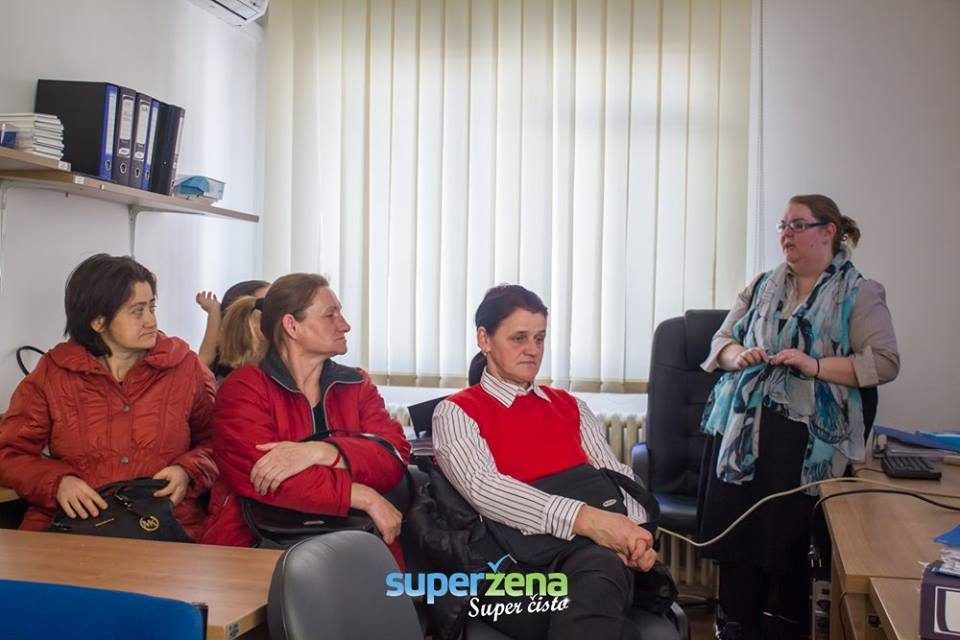
“Super Women” is a Zvornik-based, socially-responsible business that provides professional cleaning services while also working to employ women over the age of 40, who have lower levels of education and little to no formal work experience.
“Super Women” is a Zvornik-based, socially-responsible business that provides professional cleaning services while also working to employ women over the age of 40, who have lower levels of education and little to no formal work experience. According to Bosnia and Herzegovina’s Labor and Unemployment Agency, the number of unemployed persons is around 466,000 of which approximately 253,000, or 54.41%, are women.
Motivated by the needs of their mothers and the many other women who have had difficulties finding jobs due to their age or lack of experience, legal expert Tamara Jović, political scientist Bojana Tanacković, teacher Zorica Mitrović, and English language student Ana Glišić decided to start a business.
“The idea to launch this kind of business was realized during the Incubator for Business Ideas, supported and organized by the Mozaik Foundation, and a share of our profits are allocated for the education and social inclusion of the women our business targets for employment,” explained Tamara.

This ambitious young woman’s venture was inspired by her mother – a woman over 40, with only an elementary school education and just 15 days of formal working experience. Those who find themselves in similar situations belong to a category of women who are harder to employ and who are unable to satisfy the conditions for retirement. These women often decide to work ‘illegally’ for small daily allowances and under poor conditions. Research conducted by Super Women revealed that, according to the Zvornik Employment Bureau, there are 1,499 unemployed women over the age of 40 in their municipality, of whom 707 have only an elementary school education and 128 have never had a single day of work experience.
“We decided to try and help turn caterpillars into beautiful butterflies. To give these women the opportunity to feel what it’s like to earn their own paycheck, to ensure they have healthcare and retirement, and to invest in their education through vocational training courses and workshops. We also try to engage them in as many different types of social activities as possible where they can showcase their knowledge and strength and, therefore, encourage other women to become more active,” added Tamara.
The Zvornik Employment Bureau also supports Super Women in their efforts to provide additional education, training, and/or workshops to women in their community. The company also provides regular training and additional educational opportunities to its employees. For example, they are currently teaching their workers how to operate a machine for deep cleaning.
The women employed by the company show a lot of gratitude and enthusiasm and express that earning their own money means a lot to them because they can contribute to their family budgets and become more socially active.
“The job means a lot to me and my family. I’m able to work after many years of sitting at home. My children are adults and they need money now more than ever. The women we work for are good to us and they try to help us understand when we don’t know something. Every day we learn something new,” said Super Women employee Koviljka Krajšnik.

The business is now focusing on expanding its operations and number of employees. The goal is to have at least four new women employed by the end of the year and to expand their cleaning services to cover the entire Birač region as their research has shown that there is a need for such services. They are also thinking to expand their repertoire to employ women to provide daily care for the elderly and day care for children, home maintenance, catering, and other services per their clients’ requests.
“We ourselves decide whether or not we can do something. Young people must be brave and ignore the older people who are trying to convince them they should work in some government institution because, honestly, not everyone can work there. What we can do, however, is work on ourselves, perfect ourselves, and believe in our own ‘gut’ ideas. If we are working to achieve our dreams, and if we create the conditions to make this happen, we’ve already succeeded,” concluded Tamara.
This publication has been selected as part of the Srđan Aleksić Youth Competition, a regional storytelling competition that challenges youth to actively engage with their own communities to discover, document, and share stories of moral courage, interethnic cooperation, and positive social change. The competition is a primary component of the Post-Conflict Research Center’s award-winning Ordinary Heroes Peacebuilding Program, which utilizes international stories of rescuer behavior and moral courage to promote interethnic understanding and peace among the citizens of the Western Balkans.
The Balkan Diskurs Youth Correspondent Program is made possible by funding from the Robert Bosch Stiftung and the National Endowment for Democracy (NED).







